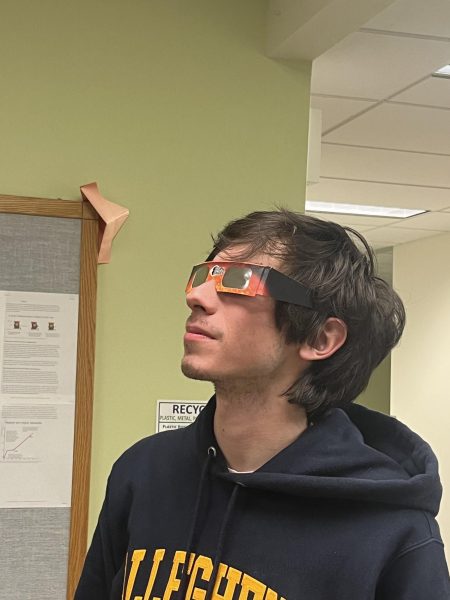Just for the Health of It
Columnist: ‘Exercise out of SAD’
It’s that time of year—finals are quickly approaching, the weather is getting colder, and daylight is as short as ever. I don’t know about you, but all of these factors hit me with a big dose of SAD every single year. No, the capitalization is not a typo—I might have my incompetent moments, but I promise you this is not one of them.
I digress. SAD, or seasonal affective disorder, is a problem for many people. For some, feeling down may be the extent of the problem, but for others, SAD can be much more serious. According to Mental Health America, “SAD is a mood disorder associated with depression and related to seasonal variations of light. SAD affects half a million people every winter between September and April, peaking in December, January, and February.” SAD can cause depression, anxiety, mood changes, sleep problems, and overeating. Interestingly enough, these seem to be the same symptoms that finals week causes, doubling the problem. (I’m joking…kind of).
As many of my columns have stressed in the past, although pertaining to other issues, it is important to realize that you can combat the symptoms of SAD through simple alterations to your lifestyle. Proper diet and adequate exercise can make all the difference in the world when you are sinking into SAD It is important to make sure that you are taking in the proper vitamins and nutrients that your body needs, and exercising for at least 30 minutes per day, although I would recommend at least an hour of activity.
Quickly reverting back to vitamin intake, Vitamin D (nutrients you receive from the sun) could help extremely in battling SAD. As I have said time and time again, exercise will allow you to have a constructive release of your energy, take your mind away from depressing thoughts, increase positive mood—the list goes on.
The biggest thing to take away from this column is that you will reap what you sow. If you really do battle with SAD like I do, you can either control it or allow it to control you. If you take a strong initiative to be active and pay close attention to your diet, it won’t affect you nearly as much. Believe me, the bad days will still occur at times, but they will be much less frequent if you do these things. Having an upbeat and positive attitude towards battling SAD will pay huge dividends.
In short: don’t be SAD. Exercise, eat right, and be grateful for each day. When lack of light gets you down, remember the sunny days, and enjoy the times where the sun does show through. SAD is what you make it, so seize the opportunity to fend off symptoms with lifestyle changes.




